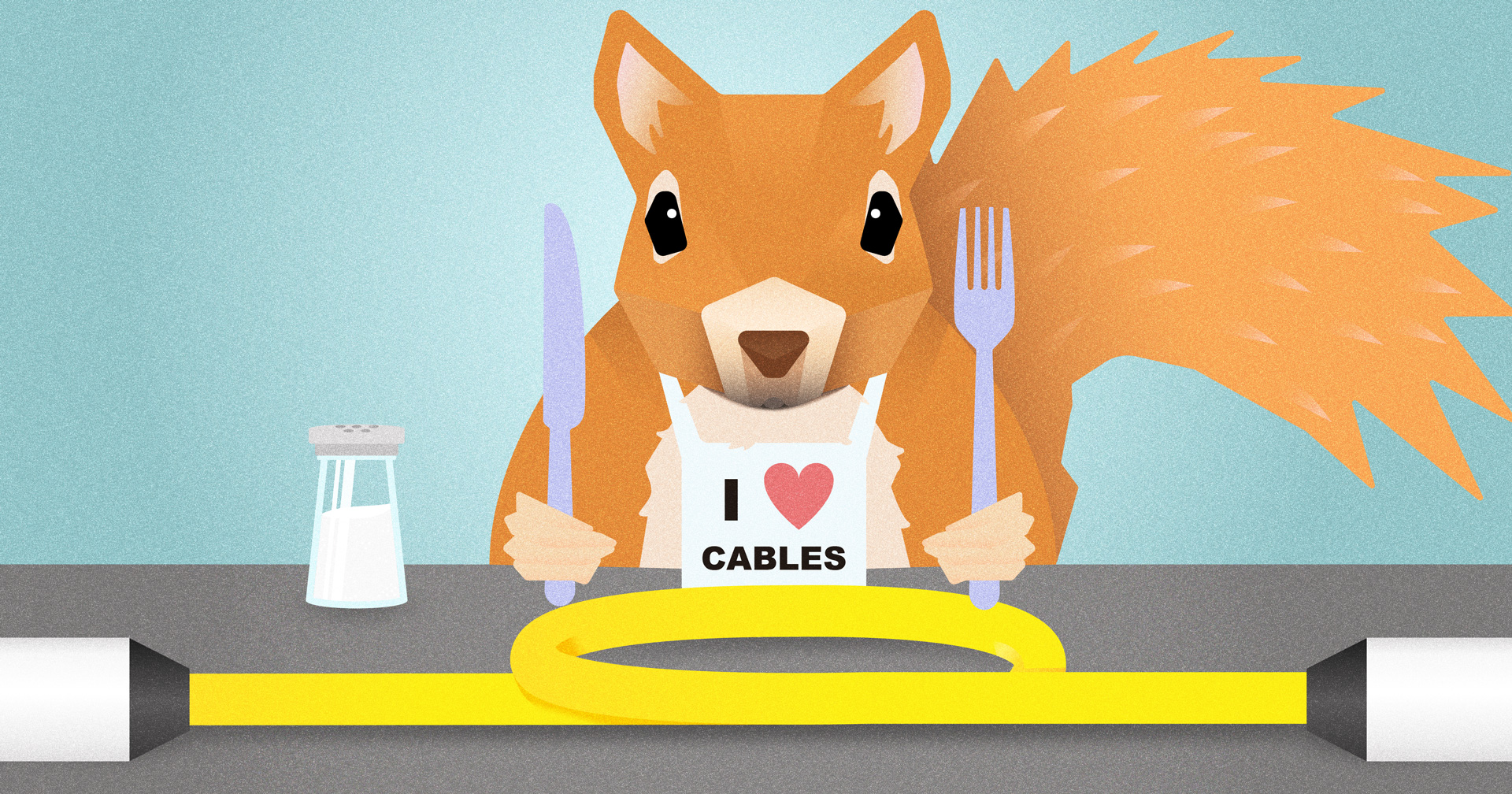
Electrical Resistivity Surveys mostly happen outdoors. Of course, you can perform small-scale tests indoors, but most clients aren’t going to give you such a comfortable project. So you’ll need to make your way outdoors into the heart of mother nature. And as such, you’ll be sharing your space with all manner of wildlife.
Some animals will shy away if they notice you working around their habitat. Others can be more curious—or attracted to some aspects of the survey.

Photo: A black bear investigating an Electrical Resistivity Survey that was being operated by Ground Truth Explorations
What attracts animals to survey lines?
Cable/Wire Jackets
Plastic cable jackets in general attract animals like deer and rodents. Rodents—especially squirrels— love to chew on cable jackets and wires. Various pest control experts and even National Geographic attribute this behavior to the fact that their prominent front teeth are always growing. Because of this, squirrels are constantly looking for something to chew on to control the constant growth.
Salt Water
Do you know what’s great for improving contact resistance? Saltwater. Do you know what attracts animals to survey lines? Salt water. Yes, salt water can be a double-edged sword in certain conditions. This is because you’re essentially making a salt lick (or a mineral lick) when you pour salt water on your stainless steel stakes. Animals like deer, cattle, woodchucks, foxes, and more love to lick naturally (and unnaturally) occurring salts. Salt licks provide them with a healthy dose of minerals and essential elements for bone growth. (Reference: Wikipedia)
Curiosity & Lack of Human Presence
Of course, both of the attractions above can be easily mitigated with human presence. Lots of animals are naturally curious and will investigate new things in their habitat—if they feel safe to do so. Leaving cables unattended overnight is a sure way of attracting nocturnal animals or animals that are active at dawn and dusk.

“Lots of animals are naturally curious and will investigate new things in their habitat—if they feel safe to do so”
But if there are people around, animals may feel less inclined to mess with your equipment. Just remember to always use caution. You may be able to scare off some squirrels but even human presence won’t scare off larger animals like bears or moose.
How to keep animals away from your survey:
As mentioned above, being around your survey and not leaving your equipment unattended will help to deter animal interference.

You can also find humane deterrents to make your survey site unattractive to animals. There are sprays with sour, bitter, or spicy flavors such as Red Hot Spray. These sprays taste awful to animals. Spraying around the perimeter of the survey site will help dissuade animals from trying to chew on cables. Similarly, you can sprinkle chilies or chili seeds around your site to keep hungry animals at bay. Very few mammals besides humans can tolerate spicy food!
